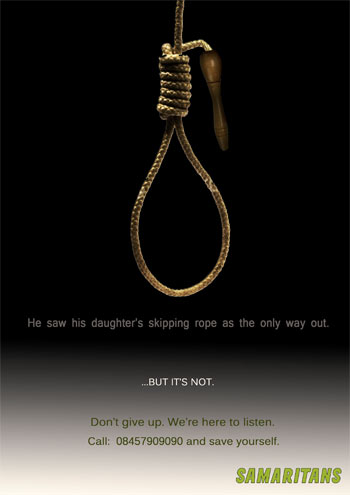As in previous years, the North West BT Unions Health and Safety Co-ord is supporting the annual Men's Health Week.
This year's Men's Health Week, led by the Men's Health Forum runs from the 10th to 16th June and aims to tackle stigma in men’s mental health and promote mental well-being and help-seeking in men.
As well as sending out leaflets to branches within the North West, the co-ords website, Unionsafety, will be providing news and resources which can be used to inform campaigns and individuals about the physical and mental health issues effecting men and their families.
The Men's Health Forum is the most effective campaign group promoting and educating men to look at their health differently,
and to prioritise it in a way they may never have done so before.
 It also recognises the fact that whilst women are far more focused on their health and very good at forming support groups and promoting the health needs of women; men are quite the opposite.
It also recognises the fact that whilst women are far more focused on their health and very good at forming support groups and promoting the health needs of women; men are quite the opposite.
In supporting the week, the Co-ord has embarked upon a Men's Health promotion campaign.
Derek Maylor, chair of the North West BT Unions Health and Safety Co-ord, has issued a campaign leaflet for circulation by Co-ord members around BT’s telephone exchange welfare rooms, engineering Stores hubs and to put up on notice boards.
The Men's
Health promotion objectives of the co-ord are:
* Educate members about importance of mental wellbeing and promote healthy behaviour for men.
* Engage behaviour influencers (especially partners and family members) to support men in being proactive about their health and lifestyle
*
Provide men with local and nationwide opportunities and resources to improve their health.
*
Engage the support of regional service providers and voluntary groups with resources and tools to promote better male health.
The Target group:
* Male engineers aged 30+, who are fathers from all walks of life - the key message for this group is look after your head so you can be there for your children.
*
Male engineers aged 16-50, who are sons and who care about their fathers. The key message for this group, and the next, is encourage and support your father to look after his mental wellbeing so he can be there for you.
*Female engineers aged 16+, who are daughters, partners, mothers and sisters who care about the men in their families.
 The campaign leaflet draws attention to the fact that men are not good at talking about their health problems and encourages men to do so, by promoting the Men's Health Forum as a source of information and support.
The campaign leaflet draws attention to the fact that men are not good at talking about their health problems and encourages men to do so, by promoting the Men's Health Forum as a source of information and support.
The Forum has a long running interest in mental health. The MHF published the first guidelines on addressing the mental health needs of men and boys and our commitment to expanding and improving our services for men.
The Forum's Malehealth website is committed to helping men improve their mental wellbeing.
Why mental well-being?
- Despite men and women experiencing mental health problems in roughly equal numbers, men are much less likely to be diagnosed and treated for it and the consequences of this can be fatal – the MHF has long highlighted that 75% of all suicides are by men and that 73% of people who go missing are men.
-
The Health & Social Care Information Centre 2009 household survey found that about 2.7 million men in England currently have a mental health problem like depression, anxiety or stress.
-
Mind research has found that 37% of men are feeling worried or low with the top three concerns being job security, work and money.
-
33% of men are drinking at a potentially harmful level.
Men and women experience mental health problems in roughly equal numbers, yet men are much less likely to be diagnosed and treated for it. The consequences can be fatal – the Men’s Health Forum has long highlighted that 3 in 4 suicides are by men and that 73% of people who go missing are men.
MHF's CEO Martin Tod, said:
“Suicide is the unspoken killer taking the lives of far too many men’s lives. Many men seek solace in drink or isolation. We have to find ways to make it easier for men to talk about their health before it’s too late.
Working with local partners, Men’s Health Week will see events take place around the country ensuring that men can talk to someone face to face and online.”
 The MHF wants to encourage men to take their mental well-being seriously and to seek help before it’s too late.
The MHF wants to encourage men to take their mental well-being seriously and to seek help before it’s too late.
The charity is encouraging health professionals and organisations to use Men's Health Week to enable men to talk.
Health professionals and organisations in England and Wales are now able to register their interest in participating in the week and to stay in touch with news updates about Men's Health Week.
For health professionals and organisations we say: Enable men to talk.
- In the UK, over 4500 men kill themselves each year. That number is rising. Men are more than three times more likely than women to take their own lives. Suicide is the leading cause of death in men under the age of 35.
- The World Health Organisation (WHO) reports depression is the leading cause of disability worldwide.
- Many men are reluctant to talk about their feelings or to seek help. Women are more likely to be treated for a mental health problem; men are more likely to abuse alcohol and drugs.
- Treat men encouragingly when they do attend primary care and try to raise concerns about their mental health. Outreach services might also help.
- Enable men to talk. The Men’s Health Forum runs the manMOT.co.uk services and produces publications.
Mind provides advice and support to empower anyone experiencing a mental health problem. They also campaign to improve services, raise awareness and promote understanding.
Register to stay up to date on Men's Health Week news and offers, subscribe to their newsletter here.
Source: Derek Maylor / Men's Health Forum




